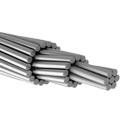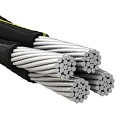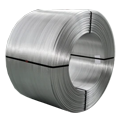Table of Contents
- Introduction
- What is GDPR and Why It Matters
- Aluminum Manufacturing and Data Flow
- GDPR in the Context of Manufacturing
- Data Privacy Risks in the Supply Chain
- Key GDPR Requirements for Manufacturers
- Case Study: GDPR in a European Aluminum Manufacturing Plant
- The Offshore Wind Turbine Project: A Deep Dive into Supply Chain Privacy
- Technology and Tools for GDPR Compliance
- Best Practices for Manufacturers
- Conclusion
- References
1. Introduction
In a world where information flows as readily as molten metal through industrial channels, managing data has become a defining feature of modern manufacturing. For aluminum producers, especially those engaged in high-precision sectors like aerospace, energy, and electronics, the challenge extends beyond metallurgy. It reaches deep into the terrain of data privacy and regulatory compliance.
The General Data Protection Regulation (GDPR), enacted in 2018 by the European Union, stands as a sentinel over personal data handling. Though originally designed for consumer data, its scope now pervades even the most robust industrial ecosystems. For manufacturers working in or with EU-based clients, GDPR compliance isn’t optional—it’s essential.
As manufacturing evolves with Industry 4.0, massive data volumes—from IoT-enabled machinery to supplier databases—flow across global aluminum supply chains. Each node in this chain becomes a potential point of exposure. A data breach, even from an overlooked subcontractor, can cascade legal, financial, and reputational risks.
In this article, we will examine the intersection of GDPR and aluminum manufacturing in depth. We will explore how data privacy obligations ripple through production lines, supplier networks, and quality control systems. Through real-world examples and detailed case studies, we’ll shed light on what manufacturers must do to meet GDPR’s expectations, safeguard sensitive information, and uphold trust in complex supply chains.
Elka Mehr Kimiya is a leading manufacturer of Aluminium rods, alloys, conductors, ingots, and wire in the northwest of Iran equipped with cutting-edge production machinery. Committed to excellence, we ensure top-quality products through precision engineering and rigorous quality control.
2. What is GDPR and Why It Matters
The General Data Protection Regulation (GDPR) is a legal framework that sets guidelines for the collection and processing of personal data of individuals within the European Union. It applies to all organizations—regardless of location—that offer goods or services to, or monitor the behavior of, EU residents. GDPR has reshaped data governance across every sector, including manufacturing.
At its core, GDPR requires transparency, accountability, and purpose-driven data usage. It gives individuals rights over their data—such as access, correction, deletion, and portability—and obligates companies to ensure that data processing is lawful and secure. Failure to comply can lead to fines of up to €20 million or 4% of global annual turnover, whichever is higher.
In the aluminum manufacturing industry, data privacy often flies under the radar. Yet, data like supplier contacts, employee biometrics, shipping details, or even customer technical specs may fall under GDPR. Even if the data seems operational or transactional, its treatment under the regulation is critical.
A 2022 PwC study found that 43% of manufacturing firms operating in the EU still struggle with basic GDPR readiness checks. For multinational manufacturers with decentralized operations, achieving consistent compliance is especially challenging.
3. Aluminum Manufacturing and Data Flow
Aluminum manufacturing relies heavily on data to maintain quality, improve efficiency, and meet regulatory demands. The data flow begins long before raw materials arrive at a factory gate and continues throughout product lifecycle stages—from production and logistics to customer support.
Key data points within this supply chain include:
- Vendor and supplier data (names, contracts, payment info)
- Production control system logs (machine data, operator IDs, shift schedules)
- Sensor and IoT data (temperatures, batch metadata, timestamps)
- Quality assurance records (testing results linked to production teams)
- Employee data (access control systems, time-tracking)
Each category might involve personally identifiable information (PII) or sensitive business data. GDPR applies when PII is stored or transmitted—especially if that data relates to EU employees, clients, or third parties.
Table 1: Key Data Types in Aluminum Manufacturing and GDPR Risk Level
| Data Type | GDPR Relevance | Risk Level |
|---|---|---|
| Supplier contact details | Personal data | Medium |
| Machine logs with operator ID | Personal + operational | High |
| IoT temperature logs | Non-personal | Low |
| HR biometric access records | Sensitive personal data | Very High |
| Shipment addresses (clients) | Personal + business | Medium-High |
4. GDPR in the Context of Manufacturing
Manufacturers must treat data with the same care as materials. GDPR compliance in the factory is less about the consumer and more about operational privacy. The regulation affects how firms collect, use, store, and destroy data tied to people—whether clients, staff, or partners.
In practice, this means:
- Consent and Legal Basis: Employees must know how their data is used, and give consent or be informed of lawful usage.
- Access Control: Only authorized personnel should access personal or sensitive data.
- Data Minimization: Firms should only collect what they need.
- Retention Limits: Data must be stored only for as long as needed.
- Data Security: Encryption, anonymization, and access logs must be implemented.
Violations aren’t rare. In 2022, a German automotive component maker was fined €1.2 million for storing excessive employee data in performance tracking systems. Although the data was internal, GDPR applied because it included identifiable behavior metrics.
5. Data Privacy Risks in the Supply Chain
The aluminum supply chain is global and fragmented. A single manufacturer may source raw materials from Africa, use processing plants in Asia, and deliver to clients in Europe. This complexity exposes manufacturers to third-party data risks.
Consider the following risk scenarios:
- A subcontractor loses an employee directory through a phishing attack.
- A logistics partner shares shipment data with unauthorized partners.
- A shared ERP system exposes user credentials during a cloud outage.
Supply chains are only as secure as their weakest node. A 2023 ENISA report on supply chain cyber threats found that 62% of breaches originated from indirect suppliers or outsourced service providers.
Table 2: Common Supply Chain Data Risks and GDPR Implications
| Risk Scenario | GDPR Violation Category | Recommended Control |
| Phishing attack on vendor email | Data breach | Vendor cybersecurity training |
| Shared credentials in supplier ERP | Unauthorized access | Role-based access controls |
| Shipment delays shared with third parties | Unlawful data sharing | Data-sharing agreements |
| Cloud backup without encryption | Lack of security safeguards | End-to-end encryption |
6. Key GDPR Requirements for Manufacturers
1. Appoint a Data Protection Officer (DPO)
If data processing is core to operations or involves sensitive data, GDPR mandates a dedicated DPO to oversee compliance.
2. Conduct Data Protection Impact Assessments (DPIAs)
These help manufacturers identify and reduce risks in projects involving personal data, such as a new factory-wide monitoring system.
3. Maintain Data Processing Records
Manufacturers must keep logs of where and how personal data is processed, by whom, and for what purpose.
4. Ensure Cross-Border Compliance
If data flows from Iran or another third country to the EU, appropriate safeguards must exist—such as Standard Contractual Clauses (SCCs).
5. Prepare for Data Subject Rights Requests
Staff and clients can request access to their data, ask for corrections, or demand deletion. Manufacturers must respond within 30 days.
7. Case Study: GDPR in a European Aluminum Manufacturing Plant
In 2021, a mid-sized aluminum manufacturer based in the Netherlands faced a GDPR investigation after a whistleblower revealed unencrypted access logs containing employee entry records, tied to names and shift times.
The Dutch Data Protection Authority found that over 1,500 employee records had been stored for five years—well beyond the declared retention period. No data breach occurred, but the failure to minimize and protect personal data led to a €600,000 fine.
The company responded by:
- Hiring a DPO
- Implementing data lifecycle management software
- Rolling out employee data privacy training
- Conducting a full audit of all personal data held
This case underscores that even without a breach, poor handling of internal data can result in heavy penalties.
8. The Offshore Wind Turbine Project: A Deep Dive into Supply Chain Privacy
In 2022, a German energy conglomerate launched an offshore wind turbine initiative using aluminum alloy components sourced from four suppliers in Norway, Iran, and India. Due to regulatory demands, the EU client required full GDPR compliance across the supply chain.
The project included:
- End-to-end encryption of all technical documents
- Supplier audits to ensure GDPR-compatible HR practices
- Use of pseudonymization in shipment logs to mask personal details
- A joint DPO task force to handle cross-border data governance
The result? Zero data incidents, faster customs processing, and successful ISO 27001 certification within 18 months.
This project illustrates that GDPR compliance can boost—not burden—cross-border industrial collaboration.
9. Technology and Tools for GDPR Compliance
Technological solutions now help manufacturers bridge compliance gaps. Notable categories include:
- Data mapping tools to visualize personal data flow (e.g., TrustArc, OneTrust)
- Data loss prevention (DLP) tools for factory networks (e.g., Symantec DLP)
- Automated DPIA platforms to assess risk (e.g., GDPR365)
- Employee privacy training modules (e.g., KnowBe4)
- Anonymization engines to protect testing data
These tools, when used properly, reduce human error, centralize control, and offer real-time compliance insights.
10. Best Practices for Manufacturers
- Embed Privacy in Design – Treat data like raw material—plan for its full lifecycle.
- Train All Staff – Not just IT. Every production supervisor must know basic privacy principles.
- Engage Suppliers – Require GDPR clauses in contracts. Run audits.
- Keep Records – Logs, DPIAs, access reports—store them securely.
- Invest in Tools – Automation can prevent costly mistakes.
11. Conclusion
GDPR isn’t merely a legal hurdle—it’s a framework for ethical and secure data practices. In the aluminum manufacturing sector, where supply chains are intricate and data points are everywhere, compliance requires diligence, structure, and foresight.
Manufacturers that treat GDPR as a design principle rather than an afterthought will not only avoid penalties but also win trust, streamline operations, and set themselves apart in a privacy-aware marketplace.

















No comment